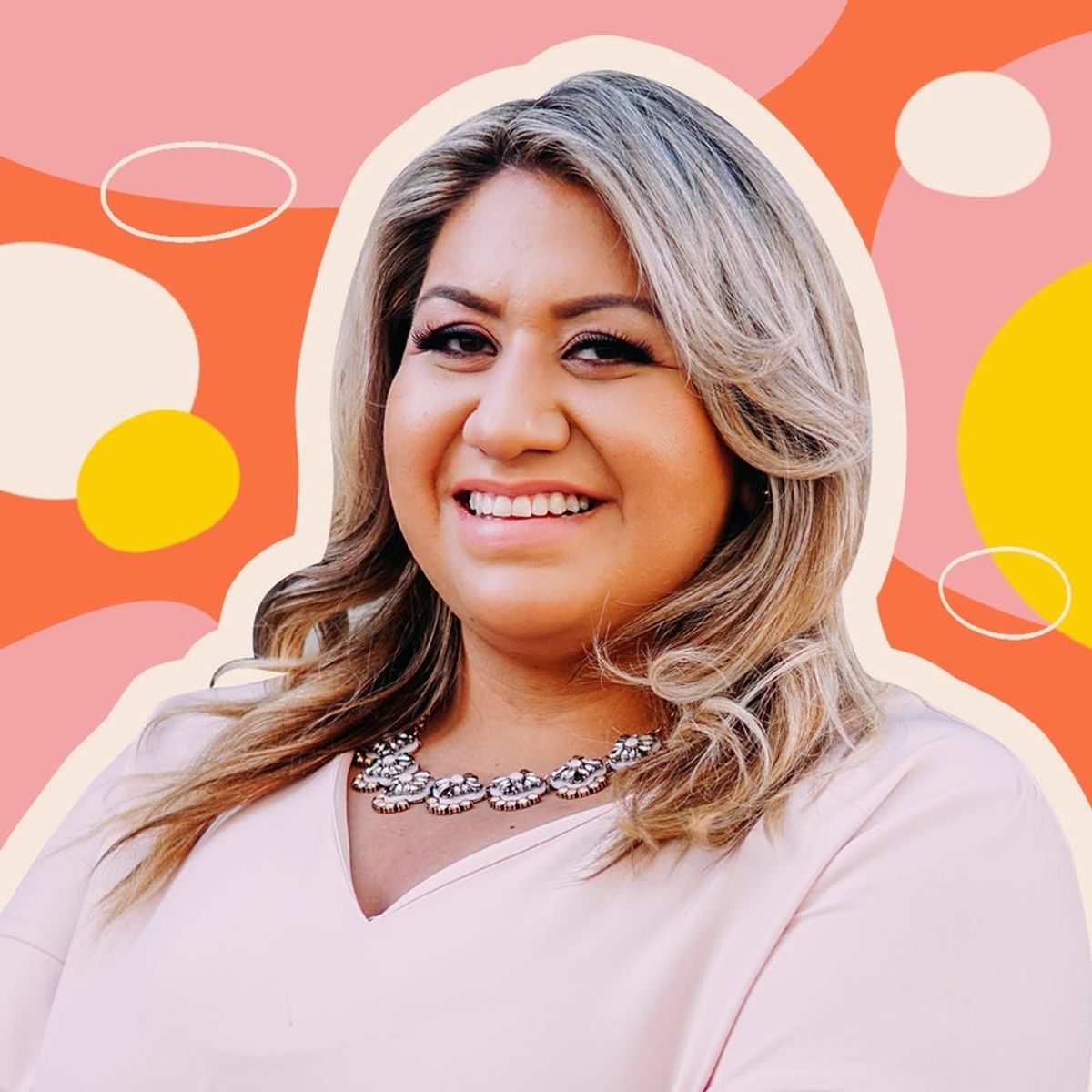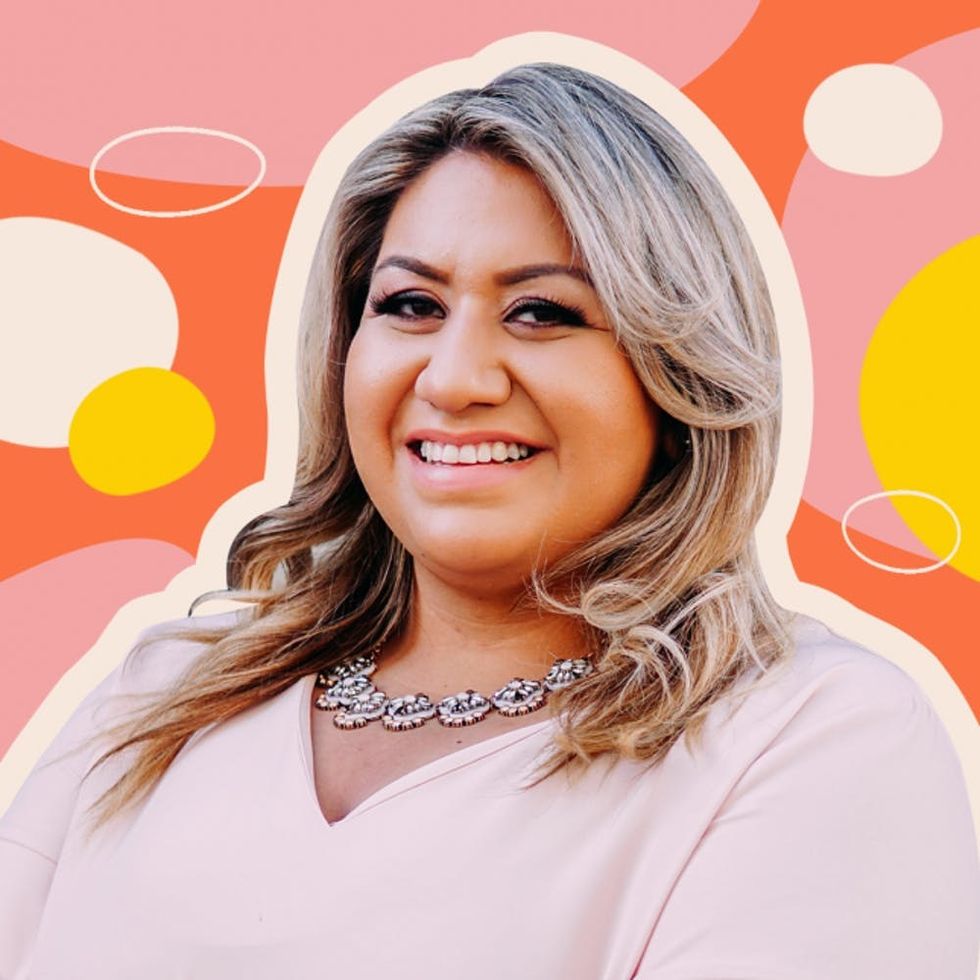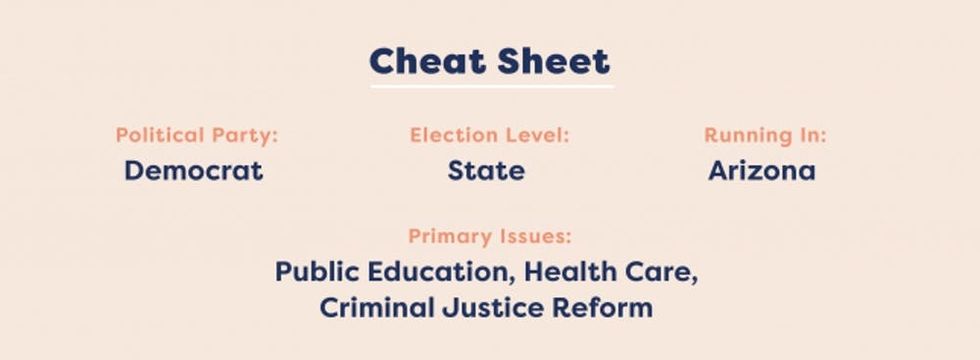Following a decade-long political journey, she’s poised to become the youngest new member of Arizona’s state legislature.
25-Year-Old Alma Hernandez Has a Message for Women: Don’t ‘Wait Your Turn’ to Run for Office


Women Who Run highlights female political candidates on both sides of the aisle who are poised to change the face of local, state, and federal government for the better.
At 25 years old, Alma Hernandez could be the youngest new member of Arizona’s state legislature come November. For Hernandez, now fresh off a primary win to represent Arizona’s third district on the US-Mexico border, the question was never if she’d run for office, but when.
One driving force behind her years of dedicated political activity — other than her older brother volunteering for Hillary Clinton’s 2008 presidential campaign, when Hernandez was just 14 — was a life-changing interaction with law enforcement that same year. Hernandez was a high school freshman when two female police officers and a school resource officer interceded in a fight between her and another student. Hernandez recalls that the officers tackled her and pinned her to the ground, causing “severe spinal damage” that persists to this day. She was promptly kicked out of school.
“One day I was an honors student, the next day I was a criminal,” she said in an interview with the Jewish Telegraphic Agency in June.
Now, as the Democratic nominee for the state legislature in her Democratic-leaning Arizona district, Hernandez regards criminal justice reform — among other key progressive issues — as one of the highest priorities in her platform.
“I was exposed very early on to the broken criminal justice system,” Hernandez tells us over the phone. “That’s what’s kept me involved and fighting for what I believe in.”
And she’s confident that her intersectional, politically underrepresented background as a young, Jewish Latina will be an asset not only to her policymaking, but also to her ability to inspire other young women like herself to get involved.

B+C: What inspired you to run for office?
Hernandez: I’ve always been extremely passionate about local politics, just helping people get into office for the past several years of my life.
And after getting my master’s in public health this past December, and finding out that we would have two open seats in my district, I decided it was time to run for one of the open seats — if not now, when? It was the perfect opportunity to do it, instead of just recruiting other people and train them. I figured, I’ve been waiting for years now, and this is the perfect opportunity to do this.
B+C: What did it take to win your primary in August?
Hernandez: It was a lot of work. Unfortunately, I was running against the political establishment machine, and it wasn’t an easy campaign. I had to do my best to fundraise in a district not known for [Democrat fundraising], because it’s a strongly Democratic district. I had to work extremely hard as a young woman — this November, I’ll be the youngest elected to serve the state legislature in Arizona. And being young, Latina, having to prove myself to others that I know what I’m doing was also difficult, because that’s how it is when you’re a woman running for office.
And just in general, the campaign involved an establishment that did everything it could to support the candidate running against me. I was running on my own against an establishment team that had all the support you could think of, trying to make it happen. It got pretty nasty toward the end, with false accusations and misogynistic attacks from supporters of my opponents. My campaign even drew national attention when [white supremacist leader] David Duke attacked me, which wasn’t easy. But we ended up doing it — so I can’t say I regret any of it.
B+C: Even before running this year, you’ve been involved in politics for some time, working on progressive fellowships and attending the Democratic National Convention in 2016 as a delegate for Hillary Clinton. What inspired you to get this involved?
Hernandez: My brother used to volunteer with Hillary Clinton’s campaign in 2008 and asked me to join him, when I was 14. I didn’t know what was going on or care that much about politics at the time, I was just showing up as support. But within that year, I became really invested in what was going on, and just being around other women who were a little older, but seeing what they were doing got me really interested.
In my family, my two siblings and I are all running for office at the same time. My brother, who’s an openly gay Latino man serving Arizona’s second legislative district and helped start the LGBT caucus, is running for reelection. My sister is running for school board. We do almost everything together, and we’re really proud of that.
B+C: What are the issues you would focus on if elected?
Hernandez: Public education is one focus, since I’m a product of the public education I received all my life, from pre-K through graduate school. I want to advocate and continue pushing for more funding, because Arizona is at the bottom of the barrel when it comes to that. We’ve made headlines for how we treat our teachers here.
And then, health care. I hold degrees in public health, and as someone who has had to be an advocate for myself and fight for my health care, I want to make sure everyone in my community and Arizona has access to quality and affordable health care.
Criminal justice reform is another big issue I’m running on. As I mentioned, I am someone who was unfortunately exposed to the broken system at such a young age. And being kicked out of high school, I know what the school-to-prison pipeline looks like. I unfortunately understand and know what our broken system does to people of color and those without means, and that’s why I’ve focused so much of my time and advocacy on reform because of what’s happened to me as an individual.

B+C: You’ve spoken about your experiences with police brutality as a young woman of color. Can you talk about whether this has affected your perspective on the issue as a politician?
Hernandez: Like I mentioned, I was unfortunately exposed to this at a young age, and sadly that’s not uncommon in my community. My life reflects what could happen to someone, but I’m fortunate to have had the support of my parents and siblings to overcome what happened to me. My reality isn’t every child’s. My parents were always at home making sure I was at school and supporting me, and so many in my community don’t have that support, so I continue to remind myself how fortunate I am, and my story isn’t everyone’s.
When it comes to criminal justice, there’s so many children who fall through the cracks in our communities because they don’t have that support. I’m fortunate to be alive, despite spinal and nerve damage, but we’ve seen so many people in the past few years dead of police brutality. I continue to count my blessings and want to do everything I can to ensure everyone in our communities is safe. It’s a very personal issue.
B+C: As a young woman of color running for office, can you talk about any barriers on the campaign trail that you may have faced?
Hernandez: As far as barriers as a young woman of color, there are so many. One of the main ones is having to constantly prove yourself to others so that they know you’re being serious. Sometimes I would just sit down and think, “Do people think I’m stupid? Do they think I’m being serious?” But these are issues I really care about.
Having to prove we’re qualified is another issue. I’ve been in politics for years now, I have a master’s in public health, I’ve done fellowships and still have to constantly prove I’m a qualified candidate to people who are much older than me, who may barely even have a college degree. It’s frustrating.
Another is just in general, I’ve been attacked for the way I look, the way I speak, the way I sit down, and carry myself. It can be so frustrating because it can come from my male counterparts who make it okay to attack me for who I am. To have to address so many issues, and then be attacked for things like looks, it feels like women can’t get a break. And being a woman of color, I feel often even more attacked.
But I think that’s even greater reason to keep fighting for what we believe in and do what we want to do.
I’m excited to announce that I’m officially Representative-Elect Alma Hernandez,MPH the youngest member of the state legislature and 1st Mexican American Jewish woman in office!Thank you to all who have been a part of this journey these last 5 months and especially the voters✊🏽 pic.twitter.com/YKvOxG8Yzh
— Alma Hernandez (@almaforarizona) August 29, 2018
B+C: What advice do you have for young women like yourself who want to get involved in their communities?
Hernandez: My advice is to just do it. Don’t let anyone stop you, don’t let anyone tell you that you aren’t good enough or don’t belong, or there’s no space or room at that table for you. As someone who got involved in politics at 14 and worked my way up, starting as a volunteer, then intern, then staffer, then campaign manager, you have to start somewhere. My biggest advice is, do it, and don’t hold back regardless of what anyone says.
Don’t let anyone tell you you’re not seasoned enough. I’ve heard that many times. And don’t let anyone tell you you need to wait your turn. As women of color, we’re never going to be told that it’s our turn. If you wait for that moment, it will never come.
All of my interns are around under 20 years old. It doesn’t matter who you are, what your background is — you’re just as good and important as anyone else, and we belong here, too. We have to keep pushing and make sure we all have a seat at the table.
B+C: What are some ways people can support your campaign?
Hernandez: Now that I’m done with the primary, we’re still working on getting my name out there. We’ve knocked on over 13,000 doors in five months, and that, for me, was a huge accomplishment. Anyone here in Arizona is welcome to join us for canvasses!
Unfortunately, we can’t do this without money in my district, where I was vastly outspent. If there’s anyone out there who could chip in $5 through our website, that would be greatly appreciated to keep us going. And of course, I would really appreciate sharing my story with others, especially girls and young women of color, because I want everyone to see my story as one of hope that they can do it too. I didn’t grow up in a family with a lot of money. My mother is an immigrant from Mexico, my father is a retired construction worker. Anyone who wants to do something can do it, and I want to put it out there. Social media has also been one important way to share my story, and anyone can help with that.
Are *you* registered to vote? Get registered now!
(Photo via Alma Hernandez. Design by Marisa Kumtong + San Trieu / Brit + Co)

















